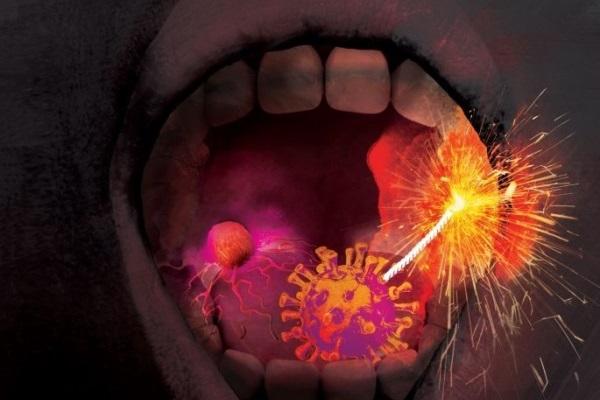The risk of developing oral cancer has increased dramatically due to the COVID-19 pandemic and related changes in lifestyle risk factors, combined with interruptions in dental care and preventive care, according to a study.

Certain lifestyle and some behavioral factors that increase the risk of oral cancer have increased during the pandemic, including alcohol and tobacco use, poor diet, and weight gain and poor oral hygiene. At the same time, the closure of the practice limited access to dental care for timely diagnosis and treatment, the authors, led by Sapna Nath, a graduate student at the Harvard School of Dental Medicine, noted.
The continuation of these trends after the lockdown is a major concern for healthcare professionals. Health care providers should be vigilant in detecting changes in patients' lifestyles.
Oral cancer is the sixth most common type of cancer in the world. The World Health Organization estimates that there are 657,000 new cases each year. This type of cancer is already associated with tobacco and alcohol use, poor diet, overweight, HPV infections, and poor oral hygiene. All of these factors have intensified during the COVID-19 pandemic. If these trends continue, an increase in the incidence of oral cancer should be expected.
Tobacco use has one of the strongest associations with the development and prognosis of oral cancer, and smokers are three times more likely to develop oral cancer than non-smokers. During the pandemic, tobacco and e-cigarette use increased as people looked for ways to cope with anxiety, boredom and irregular daily routines. At the same time, the number of applications to smoking cessation support programs fell to the lowest level since 2007.
The pandemic has also led to a reduction in the number of scheduled preventive dental services, especially due to the fact that the offices did not provide dental services during the quarantine. Poor oral hygiene and problems with dentures can increase your chance of developing oral cancer. In addition, during the pandemic, HPV vaccination rates among children and adolescents dropped by about 20%.
The authors of the study noted that many patients with oral cancer drink heavily, and countries with rising rates of oral cancer have high alcohol consumption. In a study of American adults during the pandemic, approximately two-thirds of participants reported an increase in alcohol consumption compared to before the pandemic. In addition, over 40% of participants reported drinking or drinking heavily.
Unhealthy diet and obesity have been associated with oral carcinogenesis, and obesity is also associated with an increased risk of death from early-stage squamous cell carcinoma of the tongue. Gym closures, quarantines and new work rules have all contributed to worsening health habits during the pandemic, including less regular sleep, reduced physical activity and continued access to snacks.
“As patients return to dentists, these statistics suggest that the incidence of oral cancer may increase, especially as lockdown trends continue,” the authors write.
Nath and her colleagues added that healthcare professionals and dentists will need to understand that the pandemic's impact on oral cancer could last for decades. Also, because people delay treatment due to loss of insurance or fear of contracting SARS-CoV-2, oral cancer may be more advanced at the time of diagnosis.
The authors of the study believe that dental practitioners should be vigilant about rising risk factors for oral cancer and should strengthen screening measures for all demographic groups. They also recommend that oral care providers increase collaboration with their medical peers to increase HPV vaccination rates and encourage medical wellness visits throughout the pandemic.
